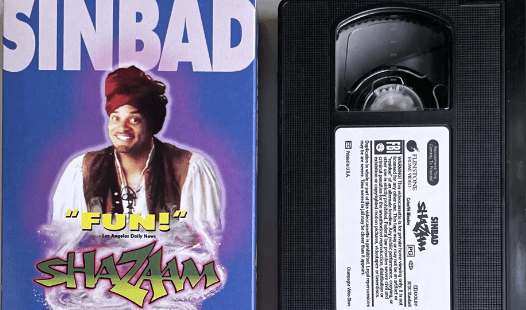In the world of internet conspiracies, few are as intriguing and persistent as the claim that actor and comedian Sinbad starred in a movie titled “Shazzam” in the ’90s, where he played a genie. Despite Sinbad’s insistence to the contrary, a group of fervent believers argue that this movie exists in an alternate reality, leading to a peculiar conspiracy theory that has captured the imagination of many. In this article, we will delve into the origins of the Shazzam movie conspiracy, examine the evidence put forth by its proponents, and explore the psychology behind the creation and perpetuation of such myths.
Shazam: A New Beginning 30th Anniversary Deluxe Edition
Kazaam [DVD] Shaquille O’Neal
The Origins of the Shazzam Conspiracy
The origins of the Shazzam movie conspiracy can be traced back to the phenomenon known as the Mandela Effect. Coined by Fiona Broome, the Mandela Effect refers to a collective misremembering of a fact or event, named after the false belief that Nelson Mandela died in prison in the 1980s. In the case of Shazzam, believers claim that Sinbad played a genie in a movie released during the same era, despite the absence of any concrete evidence.
Sinbad’s Denial
Sinbad has consistently denied ever starring in a movie called Shazzam. His public statements, interviews, and social media posts all reflect his disbelief in the existence of such a project. However, the persistence of the conspiracy theory has led to speculation about memory manipulation or a cover-up. Sinbad himself has expressed amusement at the notion, acknowledging the confusion but maintaining that no such movie was ever made.
The Power of Collective Memory
The Shazzam movie conspiracy thrives on the collective memory of those who vividly recall scenes, quotes, and even promotional material for a movie that, by all accounts, does not exist. Psychologists attribute the Mandela Effect to the fallibility of human memory, suggesting that misinformation, shared experiences, and the power of suggestion can shape and distort recollections over time. In the case of Shazzam, the vivid memories of a Sinbad genie movie may be a product of a collective confabulation.
The Role of Similar Titles and Confabulation
One contributing factor to the Shazzam conspiracy may be the confusion with another ’90s movie titled “Kazaam,” in which Shaquille O’Neal plays a genie. The similarities in titles, combined with the overlapping themes of magic and wish-granting, may have led to a blending of memories and the creation of a false narrative. This type of confabulation, where details from different sources are combined into a coherent but inaccurate memory, is a common phenomenon in the formation of false memories.
Shazam: A New Beginning 30th Anniversary Deluxe Edition
Kazaam [DVD] Shaquille O’Neal
Analysis of Other Mandela Effects
To contextualize the Shazzam conspiracy, it’s essential to examine other Mandela Effects that have gained traction. Examples include the misremembering of the Berenstain Bears as Berenstein Bears and the confusion surrounding the Monopoly Man’s appearance. These instances highlight the malleability of memory and how shared misconceptions can take root, fueled by the internet’s echo chamber effect.
Internet Echo Chambers and Confirmation Bias
The rise of the Shazzam conspiracy can be attributed to the internet’s role in creating echo chambers where like-minded individuals reinforce each other’s beliefs. Confirmation bias, the tendency to interpret information in a way that confirms preexisting beliefs, plays a significant role in perpetuating the Shazzam myth. Online forums, social media groups, and conspiracy websites provide a platform for believers to validate their memories, leading to a self-sustaining cycle of misinformation.
The Shazzam movie conspiracy, fueled by the Mandela Effect, showcases the complex interplay between memory, suggestion, and the dynamics of online communities. Despite Sinbad’s consistent denial and the lack of tangible evidence, the theory has persisted, illustrating the enduring power of shared false memories. The Shazzam conspiracy serves as a fascinating case study in the age of information, reminding us of the importance of critical thinking, fact-checking, and the understanding of cognitive processes in the face of intriguing but baseless claims.

